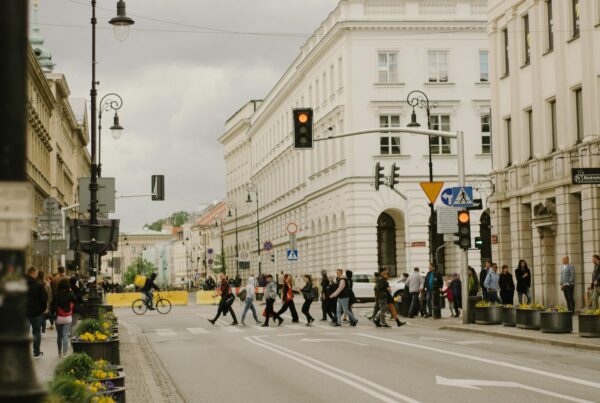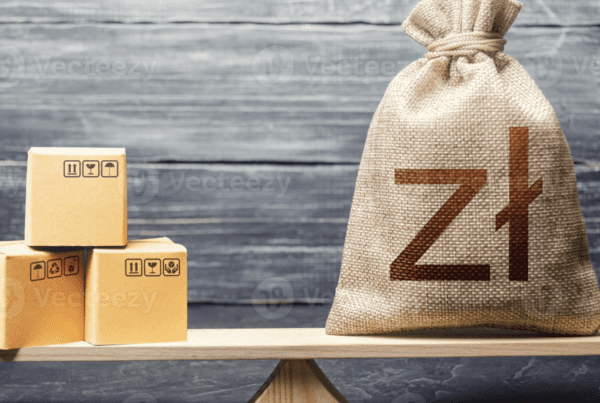Recruitment for the 4th edition of the Poland of the Future Campus / Campus Polska Przyszłości 2024 has started.
Campus – the Future of Poland is an event organised to encourage young people to take part in the social and political life in Poland. Mostly progressive politicians and NGOs attend this event and the agenda matches their viewpoints. The goal, as the organises state, is to create a space for open discussions and exchange of experiences among the participants. They want to educate the new generation of politicians. “Engagement means more and more young people take matters into their own hands – said Rafał Trzaskowski, mayor of Warsaw and the main organiser of the event along with the Future Foundation.
The event will take place in Olsztyn on August 23-29 in Kortowo, a university town of the University of Warmia and Mazury. Campus is a week-long event during which young people and guests, from NGOs, political groups and parties, will discuss five areas. “The event program will be divided into 5 thematic axes: a safe world, competences of the future, diverse society, comfort of life, economy and technology,” Trzaskowski said at Tuesday’s conference in Warsaw. 1,300 participants will take part in this year’s Campus. Registration for people to attend the event and have will last from April 23 to May 12 on the Campus website. “As usual, we invite young people aged between 18 and 35. Participation in the event is, as usual, free of charge. This is very important to us, because in this way we are able to attract young people from all over Poland,” Trzaskowski emphasized. He assured that Campus participants will have guaranteed accommodation, food and participation in all events, and “the only cost they have to incur is travel.”
Trzaskowski announced that this year’s edition of the Campus “as usual, there will be no shortage of cultural events, sports events, meetings with interesting people, social activities, workshops, and meetings with authors.” “And, of course, many, many non-governmental organisations that help us organise the Campus, and many local government officials who also participate in it,” he added. He also announced that “completely new event formats will be presented that will be a surprise for everyone. In the coming weeks, we will also present further guests because we want to maintain interest in the Campus.” He expressed hope that thanks to events such as Campus Poland of the Future, young people will develop a better connection to political and social life. He mentioned previous participants, who informed him about the poor condition of child psychiatry and psychology in Poland. “Thanks to this, we here in Warsaw, but also other local government officials, took this issue seriously and the government took this issue seriously,” said Trzaskowski.
He emphasised that Campus is not only a political undertaking, but mainly a social one, because most of the topics discussed there do not directly concern politics. He recalled the massive participation of young people in last year’s parliamentary elections and the importance of women’s votes for the results of these elections. In this context, he drew attention to the turnout in the recent local elections and added that unfortunately it was lower, also among the young generation. “In a sense, new generations of politicians are also raised on the Campus, and the activation of the young generation shows that more and more young people are taking matters into their own hands,” Trzaskowski emphasized. Hence, he noted, it is important to provide young people with a platform to express their views, because it has a direct impact on politics. “This is a test for all of us,” he added.
The first Campus Polska Przyszłości took place in Olsztyn in 2021. It was attended by a thousand people aged 18-35 and consisted of 116 events (panels, workshops, debates, meetings with creators) attended by 211 speakers. Last year’s third edition of the event was attended by 1,300 participants, 150 of whom came from 21 countries around the world, and over 200 events were held with the participation of 5,500 speakers. The guests included: US ambassador Mark Brzezinski, former Prime Minister of Belgium Guy Verhofstadt, former prime ministers: Jan Krzysztof Bielecki, Jerzy Buzek, Marek Belka, Ewa Kopacz, president of Gdańsk Aleksandra Dulkiewicz, president of Rzeszów Konrad Fijołek, as well as scientists, journalists, writers, politicians from Poland, Ukraine, Great Britain, Sweden, Hungary and Slovakia.



